While the Torrey Honors curriculum focuses on the Christian and Western great book traditions, there’s much goodness, truth, and beauty to be found beyond the Western tradition. Recently Torrey upperclassmen and faculty spent a semester reading and discussing great books from all around the globe—from South and East Asia, the Middle East, Latin America, and Africa. In addition to cultivating the virtue of cultural humility, these books help readers appreciate the global character of the Christian tradition, in all its riches and complexity. So if you’re looking to broaden your cultural engagement, these global greats are a terrific place to start!
South and East Asia:
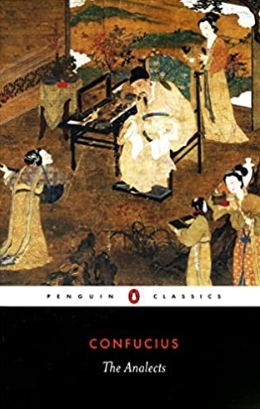
Confucius: Analects – “The Analects collects the sayings and thoughts of Confucius, the founding father of Chinese philosophy. Confucius’s teachings stress the importance of moral virtue, tradition, and neighbor love in living a good life as well as the interconnectedness of the individual, the family, and the government. It’s simply impossible to understand Chinese political and ethical thought apart from Confucius, and that’s an understatement.” – Mark Makin
Lao Tzu: Tao Te Ching – “This ancient classic of philosophical Taoism has eighty-one short sections, and there are probably at least eighty-one different ways to read it. Using natural imagery and simple words, the Tao Te Ching starts out as metaphysics and epistemology but runs through ethics and aesthetics on its way to being some kind of guide for the management of private and public affairs. Instead of imposing on the reader with authority or proofs, Lao Tzu orients us to notice the puzzling way that things are, and to understand the power of corresponding to that way.” – Fred Sanders
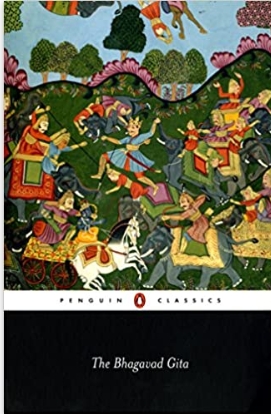
The Bhagavad Gita – “The Mahabharata and Ramayana are the two great Indian epics, in age and influence comparable in the East to Homer’s Iliad and Odyssey in the West. Within the immense Mahabharata appears the Bhagavad Gita “Song of the Lord,” a dialogue between the god Krishna and the hero Arjuna that addresses questions such as the moral dilemma of engaging in warfare, the meaning of human existence, and the individual’s struggle on the path to knowledge and right action. As a central text in Hinduism, the Bhagavad Gita has served as a defining spiritual guide in the lives of many including Mahatma Gandhi.” –Laurie Wilson
Shūsaku Endō: Silence – “Endō’s Silence is a profound, painful, and provocative novel on the significance of suffering in the Christian life when God seems silent. Endō honestly reckons with the unintended damage caused by foreign missionaries in Japan and wrestles with how Western Christianity must adapt to take root and flourish in the East. Read this book prayerfully and with a box of tissues.” – Mark Makin
Middle East:
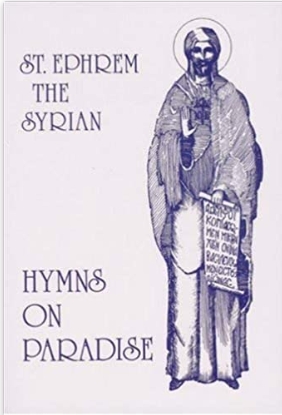
Ephrem the Syrian: Hymns on Paradise – “St. Ephrem’s Hymns on Paradise offer a wonderful portal into the spiritual riches of the ancient Syriac Christian tradition where poetry and theology as well as imagination and orthodoxy offer each other a holy kiss. Once you make St. Ephrem’s acquaintance and sit as his feet as he takes you on a journey through the early chapters of Genesis, you might never read the Bible the same way again.” – Todd Thompson
Al-Ghazali: Deliverance from Error – “Al-Ghazali’s Deliverance from Error is a deeply personal meditation on the nature of the spiritual life from a Muslim mystic disenchanted with the strictures of rationalism and legalism and clearly influenced by some of the best traditions of Christian monasticism in his region. It’s also the fruit of discerning, long-term engagement with the writings of the foundational Torrey authors Plato and Aristotle.” – Todd Thompson

Ibn Tufayl: Hayy Ibn Yaqzan – “A fascinating philosophical narrative, Hayy Ibn Yaqzan explores the relationship between human reason and divine revelation through the tale of a solitary man raised by a doe on an equatorial island (which likely inspired Daniel Defoe’s Robinson Crusoe). Ibn Tufayl artfully weaves together Aristotelian philosophy and Sufi mystical theology to create this classic of medieval Islamic thought on human nature and humanity’s place in the world, seeking to answer the enduring question of whether it is good for man to be alone.” – Mark Makin
Latin America:
Bartolomé de las Casas: A Short Account of the Destruction of the Indies – “In his Short Account of the Destruction of the Indies, Bartolomé de las Casas, himself an early colonizer, chronicles the decimation of the indigenous population and the devastation of the land to such an extent that the Indies themselves could be said to be “destroyed.” His book, a plea to the Spanish crown to intervene, came too late, but it stands as a damning report of the inhumanity of Spanish conquest. Las Casas is clear that it was gold, not God, that drove the Spanish; and these greedy, murderous “Christians” killed countless local people without giving them the gospel, destroying both body and soul.” – Matt Jenson
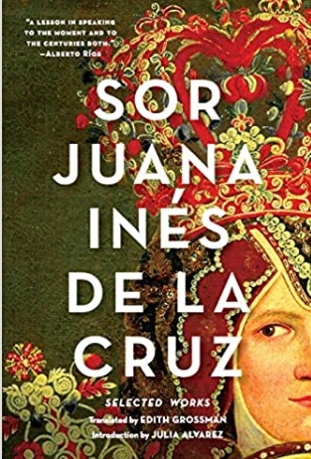
Sor Juana Inés de la Cruz: Selected Writings – “Best known for her prescient and impassioned defense of women’s education in her “Reply to Sor Filotea de la Cruz,” Sor Juana Inés de la Cruz was dubbed by her contemporaries as “The Tenth Muse” and the “Phoenix of Mexico.” In this outstanding collection of her poems and other writings by celebrated translator Edith Grossman, Sor Juana contemplates love and laughter, the conflict between colonialism and Christianity, and the universal longing to know creation and its Creator.” – Mark Makin
Gabriel García Márquez: One Hundred Years of Solitude – “This novel by Colombian author Gabriel García Márquez is a gripping epic that follows the dynasty of the Buendía family in the fictional town of Macondo. Spanning nearly six generations of Buendías, the book shows the tension arising when this small South American town experiences the transition from its traditional founding into the new modern age, filled with freight trains, big business, and military strength. What marks the Buendía family is their distinctive, and quite varied, experience of solitude, from the loneliness and separateness of the patriarch’s second son Colonel Auriano Buendía, to the ascension of the innocent Remedios the Beauty, to the strong leadership of the matriarchal Ursula, whose hundred year long life spans the novel and frames the hundred years of solitude that tragically plagues the family.” – Isaac Blois
Africa:
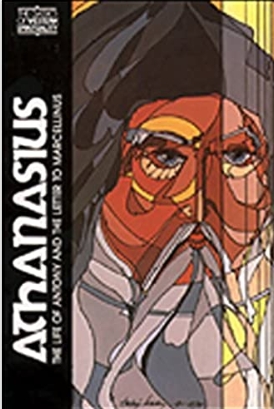
Athanasius: The Life of Antony – “The Life of Antony tells the story of one of the earliest Christian pioneers, a monk named Antony, who devoted his life to the pursuit of God in the Egyption desert. It’s part adventure story, with the hero doing battle with demons in disguise, part crash course in monastic spirituality, and part Athanasian theology as it is lived out in the life of his good friend, Antony.” – Janelle Aijian
Olaudah Equiano: The Interesting Narrative of the Life and Adventures of Olaudah Equiano or Gustavus Vassa, the African – “Part slave narrative, part spiritual autobiography, Equiano’s Interesting Narrative chronicles his idyllic childhood in Africa, brutal enslavement, harrowing sailing adventures, and transformative conversion to Christianity. Through hell and high water, Equiano sees God’s providence and goodness in liberating him from both physical and spiritual slavery.” – Mark Makin
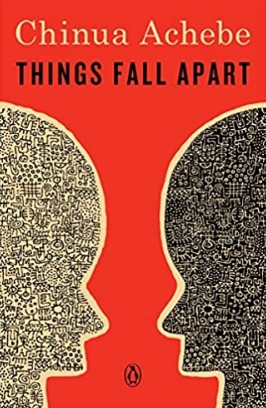
Chinua Achebe: Things Fall Apart – “Chinua Achebe’s Things Fall Apart is short but powerful; a modern classic that repays the careful and attentive reader with rich fruit gleaned from humanity’s troubled past. Exploring the themes of religion, inculturation, and modernization, Achebe plows a disconcerting furrow through the fields of Western civilization’s historical impact on native African culture.” – Greg Peters